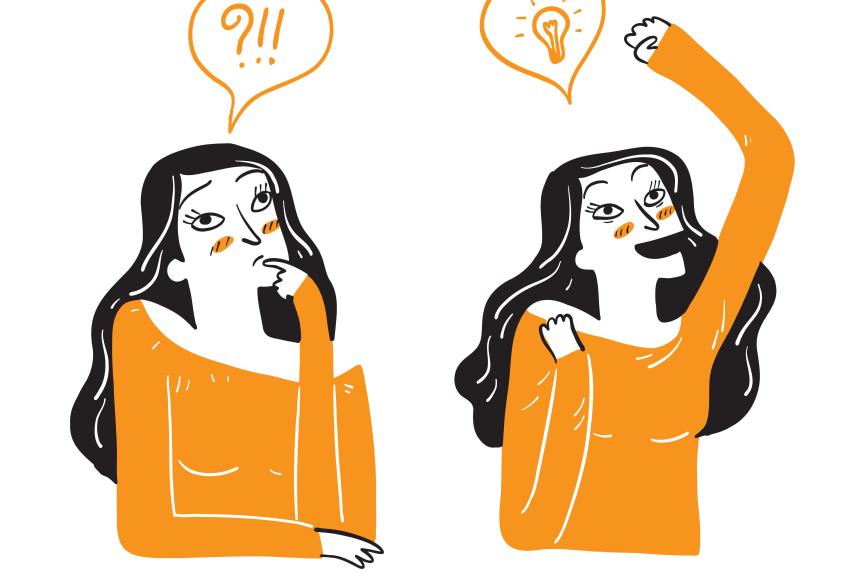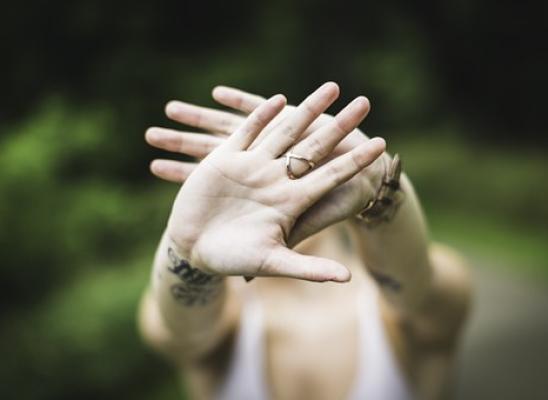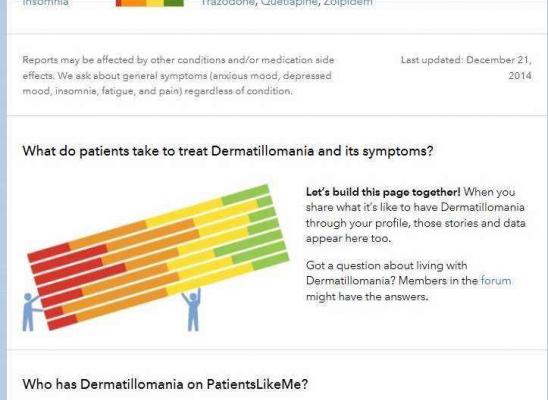Telling Your Story: How to Talk About Your Scars with Your Romantic Partner

Online test
Find out the severity of your symptoms with this free online test
Skin picking disorder, clinically known as excoriation disorder, is characterized by repetitive skin picking that results in damage to the skin, emotional distress, and impaired functioning. One of the consequences of repeated picking is scarring which can sometimes be quite severe. Their appearance can be the source of additional emotional stress and worry about appearance.
Scars are a sign of physical healing. But they are much more than that.
Scars hold meaning. They have a history, and they tell a story of someone’s personal experiences. Scars represent the pain and struggle one has endured. They are a symbol of what you’ve been through and your journey of healing.
Some scars are barely noticeable, or in places that others don’t see. Sometimes scars are quite prominent. They can be a source of considerable anxiety, especially when you’re meeting new people or beginning a new relationship. At some point, you may be asked about them. Or you may feel compelled to share about them.
You may worry about being judged or even rejected by the other person. Is there a right time to share? How can you share in a way that feels safe? Revealing your scars means revealing your story and that isn’t always easy.
Why Sharing Is Hard
Because scars hold so much emotional meaning, the idea of talking about them can leave you feeling vulnerable. Individually, scars can be interpreted in both positive and negative ways. On one hand, the person may embrace them as symbolic of growth and change. On the other hand, some people have a more difficult time coming to terms with their scars and fear that others will see their scars and not them as a person.
Scars, especially those that result from self-injurious behaviors, sometimes carry significant stigma, leaving individuals feeling shame and needing to hide their scars. Self-injury is often pathologized and seen as indicative of mental illness, impulsivity or immaturity, even though that is not always true.
Not surprisingly, appearance-related concerns have been found to play a significant role in skin picking. Skin picking has been shown to result in a marked impairment regarding appearance-based rejection sensitivity. In other words, people with skin picking worry about rejection from others.
People living with skin picking often report feeling shame and embarrassment about their picking. Two dominant themes that are often cited as sources of worry are concerns about the judgement of others and being misunderstood. How will other people see me? Will they even understand? As a result, people will go to great lengths to hide the evidence of their picking and avoid social interactions that might invite inquiry. Some express worry that others will see their skin damage and think they are infectious or lacking in self-control. These concerns make opening up and being vulnerable a scary proposition indeed.
Will My Scars Matter to Others?
It’s a concern that is likely to come up when deciding when or how to talk about your scars. Will they be accepting and supportive? Will they reject me?
Anecdotal evidence and those who have shared their experiences suggests that for a partner or significant person who cares for you, the scars don’t seem to matter. If anything, learning about your experiences with skin picking seems to foster a connection and a sense of compassion and caring. In some cases, their partner revealed similar struggles opening a path for authentic sharing of their respective experiences.
So, the decision becomes for many, to tell or not to tell.
Tips for Sharing
The most important thing to know is that the decision to share about your scars, or not, is entirely up to you. There is no single right or wrong answer or time to do it.
The timing is up to you - In looking at some of the experiences shared by others, many seemed to advocate for sharing earlier rather than later. By doing so, they felt that it lent insight into the other person and whether they could be a trusted support. Others opted for a more organic revelation, addressing the issue as it came up.
Similarly, people shared that if their partner had scars to reveal, they were open to their partner sharing when they felt ready. And most were quick to share that scars did not negatively impact how they viewed their partner. If anything, it seemed to enhance feelings of compassion and caring.
Share only as much as you want – There is no “rule” that says you have to tell the whole story all at once. Share the parts you’re comfortable sharing.
Expect some questions – You’re sharing a lot with your partner, and they may not understand skin picking. Answer the questions you can. Offer to share some resources with them to better understand your experience.
Be realistic – In sharing anything with another person, one of three things may happen:
- Acceptance – The best response, your partner may be completely accepting and ready to support you.
- Denial – Your partner might have trouble wrapping their mind around just what you’re sharing with them. They may not understand skin picking or be able to grasp that it’s something you’re living with. It may take time and more information to fully understand.
- Rejection – Not the response you want, but as with anything in life, it is a possibility that you have to be prepared for. This response may reflect a person’s own biases, beliefs, or stigmas. Sometimes rejection can be overcome, but sometimes, it’s just not possible. The important thing here is to be clear that their response is about their own issues and not you. You are not your skin picking and it does not define who you are.
Let your partner support you – Accepting help can be hard, especially if you’ve spent a lot of time avoiding help for fear of judgment. It’s ok to accept support.
Tell your partner what you need - Chances are, your partner wants to help but may not know how. Let them know how they can support you. What helps, and what doesn’t.
Give it time – Feeling safe to open up and share takes time. Understanding takes time. Give yourself and your partner the time and space to adjust to this new level of emotional intimacy and connection.
The Takeaway
Being vulnerable with a romantic partner is never easy and there is no single way to share personal experiences. If you’re struggling with your skin picking and its implications for your romantic relationships, there is help. Navigating relationship issues is often an integral part of a comprehensive treatment approach.
References
1. Lewis, S. P., & Mehrabkhani, S. (2015). Every scar tells a story: Insight into people’s self-injury scar experiences. Counselling Psychology Quarterly, 29(3), 296-310. https://www.tandfonline.com/doi/full/10.1080/09515070.2015.1088431
2. Long, M. (2017). ‘We’re not monsters … we’re just really sad sometimes:’ hidden self-injury, stigma and help-seeking. Health Sociology Review, 27(1), 89-103. https://www.tandfonline.com/doi/abs/10.1080/14461242.2017.1375862
3. Schmidt, J., Gallinat, C., & Martin, A. (2023). Appearance-related concerns in individuals with pathological skin picking—a comparison with individuals with dermatological conditions and skin-healthy controls. Frontiers in Medicine, 10. https://www.frontiersin.org/articles/10.3389/fmed.2023.1075743/full
4. Anderson, S., Clarke, V., & Thomas, Z. (2022). The problem with picking: Permittance, escape and shame in problematic skin picking. Psychology and Psychotherapy: Theory, Research and Practice, 96(1), 83-100. https://bpspsychub.onlinelibrary.wiley.com/doi/10.1111/papt.12427
5. Reddit. (n.d.). Reddit - Dive into anything. https://www.reddit.com/r/CompulsiveSkinPicking/comments/175vv3n/question_about_scars_for_anyone_that_has_beenis/
6. Reddit. (n.d.). Reddit - Dive into anything. https://www.reddit.com/r/TooAfraidToAsk/comments/s89hxk/when_would_you_want_to_know_that_the_person_youre/
Online test
Find out the severity of your symptoms with this free online test
Start your journey with SkinPick
Take control of your life and find freedom from skin picking through professional therapy and evidence-based behavioral techniques.
Start Now



